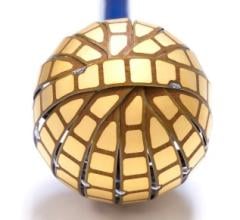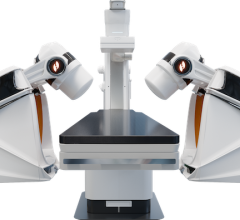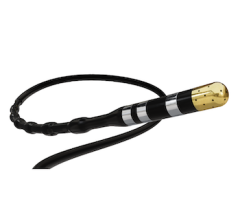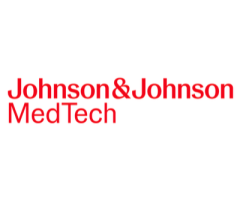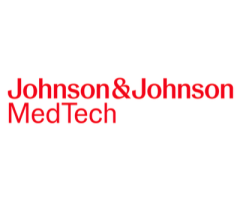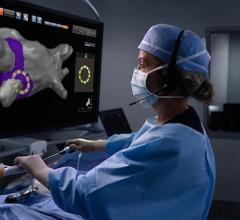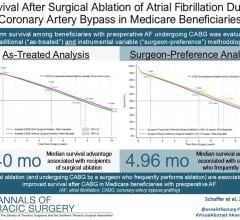November 11, 2008 - In a randomized, multicenter clinical trial, catheter ablation has been shown to significantly outperform anti-arrhythmic drug (AAD) therapy for the treatment of symptomatic paroxysmal atrial fibrillation.
In data presented today at the American Heart Association’s Annual Scientific Sessions, patients receiving cardiac ablation with the NaviStar ThermoCool Catheter, manufactured by Biosense Webster Inc., were significantly more likely to be free of recurring atrial fibrillation (AFib) at nine months after initiation of treatment. They also experienced fewer serious adverse events after 90 days than those receiving AAD therapy.
“This is the first time in an FDA-monitored, controlled clinical study that catheter ablation has been shown to outperform traditional medical therapy,” said David Wilber, M.D., primary investigator of the study and the George M. Eisenberg professor of cardiovascular sciences and director, division of cardiology, Loyola University Medical Center in Maywood, IL. “These data are extremely important to the electrophysiology community widely adopting alternative treatments to traditional medical therapy, which can often cause significant side effects for patients suffering from this debilitating condition.”
Dr. Wilber is also compensated for his services as a member of the company’s scientific advisory board and provides other consulting services.
Currently, there are no ablation catheters approved for marketing FDA for the treatment of AFib in the U.S., the company said. Biosense Webster submitted a pre-market approval (PMA) supplement for an AFib indication for its ThermoCool Catheter, based on this study data. The PMA supplement was granted priority review by FDA, which will convene the Circulatory System Devices Advisory Panel Nov. 20 in Gaithersburg, MD, to review the application.
This clinical trial was a randomized, unblinded and controlled evaluation of symptomatic, paroxysmal AFib patients who were refractory to at least one AAD and had at least three episodes of AFib in the six months prior to randomization. A total of 167 patients were enrolled from 19 sites throughout the world and the primary effectiveness endpoint (chronic success) was freedom from documented symptomatic AFib recurrence following procedural endpoint confirmation and absent new AAD use or repeat ablation outside of protocol-defined criteria.
The probability of chronic success was 62.7 percent for patients receiving NaviStar ThermoCool Catheter ablation at the nine-month effectiveness evaluation period, which is significantly superior to the 17.2 percent probability for the group of patients treated with AAD. The ThermoCool Catheter ablation group also demonstrated a substantial reduction in symptomatic AFib recurrence compared with patients treated with AAD (75 vs. 21 percent).
Additionally, the ThermoCool Catheter ablation group demonstrated an excellent safety profile with no device-related serious adverse events such as death, heart attack, stroke, cerebrovascular accident, heart block or atrial perforation within seven days post ablation. The company said there was no clinically significant pulmonary vein stenosis in patients receiving ablation, and the incidence of serious adverse events in the ThermoCool group in the 90 days following initiation of therapy was observed to be approximately half that in the AAD group (35.1 vs. 18.4 percent).
The NaviStar ThermoCool Catheter is currently approved in the U.S. for the treatment of Type 1 atrial flutter, and recurrent drug/device refractory sustained monomorphic ventricular tachycardia due to prior myocardial infarction and two types of cardiac arrhythmia.
For more information: www.biosensewebster.com

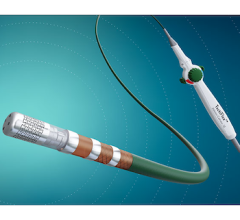
 January 22, 2026
January 22, 2026 
